#american gestapo
Text
This is a Chicago Jump Out Squad
In DC this sort of thing is normal too.
People need to understand. I have spent my adult life in driving distance between the urban centers where this slave catcher ass policing style is the reality, and the prison(s) where massive prisoner populations are rented out to governments and corporations for literal pennies to the inmates.
-and this article is from 2014
#whats going on here in the video#is that he is walking away from the police#they are using every single social queue possible to make him stop and he knows that if he stops hes agreed to a conversation and they#can start their routine. ..its not a surefire defense#they will put guns in your face#but yeah this is the scenario that the supreme court says is reasonable#specifically that you have to physically walk away from the armed men accosting you if you#dont wan to be accosted#US Authoritarianism#police abolition#phone camera#street#chicago#dc#washington dc#baltimore#memphis#richmond#american fascism#Chicago il#illinois#the district#district of columbia#dc metro#MPD#chicago police#gestapo#JUMP OUT SQUADS#jump out#mass incarceration
3 notes
·
View notes
Text
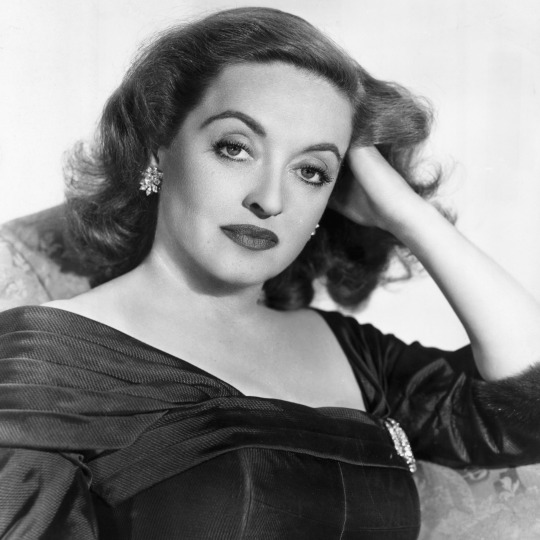

Propaganda
Bette Davis (All About Eve, Now Voyager, Jezebel)—She is a bitch and I like her so much. Also: unf. She does it all: rage, vulnerability, romantic passion, hauteur that invites beholders to say "step on me" under their breath. Her work in the 1930s, from melodramas to romantic comedies, is excellent, but I've mentioned 1940s films above because I feel that she really was at her best once the studio allowed her star image to get edgier. Also her decades-long platonic friendships with male co-stars (e.g. Paul Henreid, Claude Rains) are very important to me. Anyway: bow down before Bette Davis, HBIC.
Lilian Harvey (Die Drei von der Tankstelle, Der Kongreß Tanzt, Glückskinder)— Lilian Harvey was one of the most popular German film stars of her time, appearing alongside frequent co-star Willy Fritsch like a European version of Ginger Rogers and Fred Astaire. She had it all: she could act, she could dance, she could sing, she was hot, and she wasn't afraid to stick it to the Nazis. During the 1930s, she remained in contact with her Jewish friends and colleagues, which earned her the scrutiny of the Gestapo. When choreographer Jens Keith was arrested for having a sexual relationship with another man, Lilian posted his bail, allowing him to escape to France. She was eventually forced to flee Germany herself, and her film career never recovered. She is perhaps best known to American filmgoers from her brief mention in "Inglourious Basterds," when Joseph Goebbels insists that her name not be mentioned in his presence.
This is round 2 of the tournament. All other polls in this bracket can be found here. Please reblog with further support of your beloved hot sexy vintage woman.
[additional propaganda submitted under the cut.]
Lilian Harvey:
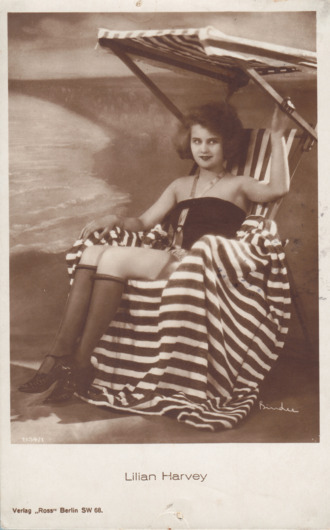
Bette Davis:
youtube
"The absolute GOAT of vintage cinema. An icon. Her EYES. Any time you see Bette on screen you know she's about to steal the spotlight. Her range is incredible, she can play coy, shy, mischevious, innocent, evil, hideous, beautiful, cunning, and wise all with the same self assurance and talent. I live in awe of her ability. And, of course, she's gorgeous. I think she peaked in 1950 with "All About Eve", at the age of 42- she was in full control of her craft, she's a milf, and her scratchy voice makes me nervous in a good way."


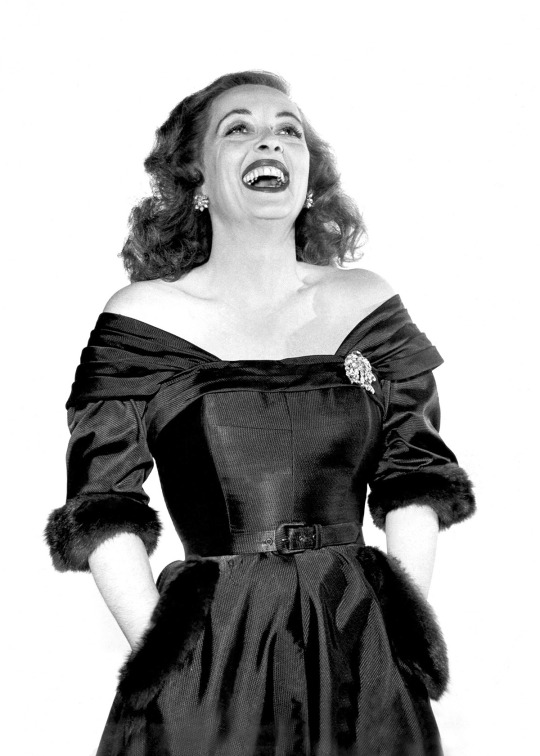
"She’s Bette fuckin’ Davis! She had a great sense of humor and a lovely pair of eyes! She was a camp icon and fuckin’ knew it. And she wasn’t afraid to make fun of herself!"
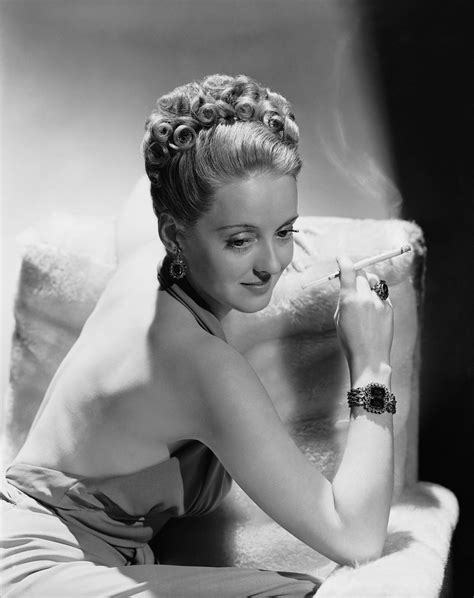

"shes got a whole song of saying how hot someone is bc they look like her"

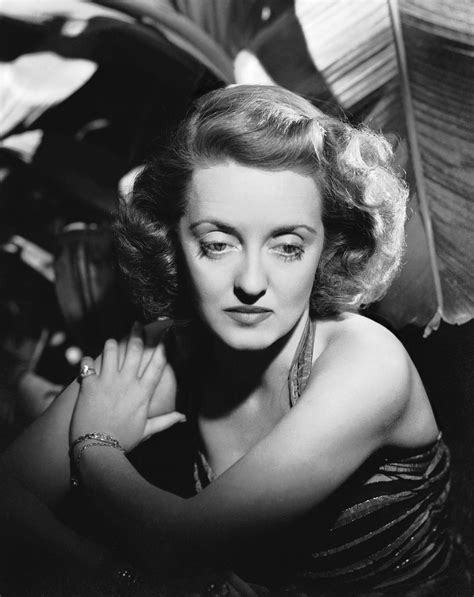
"She's got Bette Davis eyes! Incredible character actress, charming, witty as all hell. Her favourite accessory was a lit cigarette."


150 notes
·
View notes
Text
Those Who Can || integrated Female Air Force series
Introductory part 1: Flintenweiber, or “Rifle Broads”.



Summary: The American War Effort had conceded to the enlistment and commissioning of women into the Air Force at semi-integrated status. Deemed a more reliable if not safer combat post, the going rank of officer in the Air Force was intended to secure fair treatment and combatant status for these women, as it had for their male counterparts. Like most things in war -or life if one is a woman- such recognition must be fought for.
Authors Note: this is an Au, obviously, and I intend for the de-segregation in the force to not be entirely full, in fact in some ways they would mirror that of the Tuskegee Red Tails where they were held back from many opportunities and placed at a disadvantage, to say the least. However, as this is primarily a POW fic that aspect only effects their reception into the Stalag and the timeline of their crashes.
Inspo: thanks to all of y’all who contributed with suggestions and advice on this fic. I want to say that I based a great deal of the brutal treatment and indignity heaped on these fictional OC’s on the true and horrific treatment of the Soviet Female Soldiers taken as POWs. Taking into consideration that American ties would give these OC’s some leverage, I have moderated these horrors if anything, however as I intend for these girls to be some of the first of their kind, they in many ways endure the brunt of the cruel initiation. If you’ve got any questions or suggestions about this, have at the inbox.
Warnings: 18+ for disturbing content. War, brutality, cruelty, and references to sexual violence. Specifics: a woman’s head is forcefully shaved, a woman is kicked to death, a dog turned loose, concentration camps, brief infighting between Soviet’s and Americans, past tense illusions to rape which are underplayed and may be consequently more disturbing to some. Quite angsty ok?? It’s women at war. Rampant misogyny by Nazis.
Familiar faces: Gale Cleven, Benny Demarco, John Brady, “Hambone” Hamilton
Original Characters: Lt. Maureen Kendeigh (bombardier), Lt. Colonel Ida Brady, Lt. Tallulah Smith 
If Maureen Kendeigh heard the word “degenerate” used one more time in regards to her profession, her sacrifice and skill, -she just might do something regrettable.
By this point she was ready to get off this cattle car and go back to talk with Interrogator Glasses about stupid and unnerving shit like why the clock in the mess hall at Thorpe Abbots had a broken arm. Her distressed inner monologue of “how did he know that??” at the time was preferred to this newest method of demoralization: death by aspersion and suspense.
It was nice to be back with the girls, ones she knew and ones from other squadrons. But that held a misfortune too, the fact that it was just the girls, still not a single male crew member in sight. Apparently the Gestapo and the Luftwaffe were having a spat over who got to keep them, these Flintenweiber: “Rifle Broads”.
In the meantime Maureen and her fellows got punted back and forth between the two institutions like unwanted stepchildren. First the horrible isolation but humane treatment of the Air Force interrogation cells. Then back to the prison where all bets were off and the hope of safety came from a herd-like defense of each other against the ever more erratic guards. In these holdings, if one of their members hadn’t been executed by a pistol to the temple by end of day, it was considered a successful defense by the whole. All other atrocity, indignity and assault were unbearable’s that required bearing for the time being until the Luftwaffe took them back.
And then handed them back over.
And on and on it went.
It was effective, Maureen gave them that, after each hosting by the Gestapo, the girls were softer, tenderized and more susceptible to any deal that might procure them a shred of honor and safety. Only Ida Brady, the most senior amongst them at the incomprehensible rank of Lt. Colonel, had held ranks together, spine of steel and bearing more terrifying than most men’s, she’d fought for every grueling respect of rank they had been afforded. Even if it landed them in harsher conditions, worse interrogations -anything to ensure that what happened to her girls were considered as war crimes against lawful combatants when the time came for justice.
But they’d been collecting the downed girls and holding them apart like prized anomalies while conflicting orders came in from Berlin, and while the Red Cross fussed regarding combatant status. Now they had a tidy number collected, well over fifty by the time Maureen saw Ida Brady pushed into the cell, having been downed with a significant portion of them after Munich.
But now they hadn’t seen Brady in over a day. Not since they’d been loaded on this rail car headed to god knows where by soldiers with the dreaded lightning bolts on their collars.
The SS.
With Brady missing, Maureen supposed that made her and Lieutenant Smith a leader of sorts. Most of her “leading” currently took the form of not responding to a single vile threat or taunt by the guards mingling amongst them in the ever rocking car. Ida would be proud of her emotionless detachment at one guard’s suggestion to let the dog loose and see who it chose to maul.
Lieutenant Smith -tender hearted Tallulah with the bronzed skin and knack with animals that rivaled Snow White’s- had made the cryptic observation in Maureen’s ear that she’d never known a dog could be trained away from the throat to go for the breasts instead.
As of last Sunday they now knew, and none of them were likely to forget.
“I’ll be faster next time,” Smith had mumbled in a simmering rage, “I’ll be faster. I’ll have my fist down that cur’s throat before they finish slipping the leash.”
It was a nice sentiment, would’ve been made more so if Maureen wasn’t so sure it would land dear Smith with a bullet in her head. Would be made more so if Sergeant Forsyth had lived from her injuries long enough to benefit from it. Lots of things would be made nicer by heavier coats and the presence of drinking water.
One of the new ones, a terrified little replacement who wore her ordeal on her face, made the rookie mistake of asking for a drink. She’d been given the predictable initiation of being pissed on by a guard in answer and now she bore her thirst as doggedly as the veterans.
When the train cars rolled to a halt, and the great door was hauled back, sprawling out before them appeared the most idyllic scenery one could ever hope for. A crystalline blue lake, dotted on its border with charming structures adorned with red tile roofs, a quaint church of the same, lush fields and sparkling water and deep forest for miles. Maureen did not think they would haul them so near a town only to execute them. But then what did she know?
Nothing, not even where she was.
When they had lined the girls up, some in worse shape than others and a motley collective group from various military branches, they hauled off Ida Brady to the head of the pack, her bruised face considerably more busted than when she’d been loaded on. Maureen could see her craning her neck as she was drug past, counting down her flyer girls, looking for any missing from the trip.
They were marched, four abreast and with guns at their backs, down a wide and well traversed road into town, past cottages on its outskirts with little garden plots and clothes blowing on the line. Maureen was reminded of the idyllic countryside she had landed in with her chute before being seized and hauled off. There were women and children in row boats on the lake and the path they took through the woods was more peaceful than ominous. A traitorous sort of hope began to bloom in Maureen’s heart.
That was dashed when the tree line broke and out before them stretched what seemed to be miles of wire. And beside it a sign, welcoming them to Ravensbrück -a concentration camp. A camp for civilians, a camp to never return from.
Their new guards were ready for them, smiles on their faces and whips in their hands. Among them were a few remarkable for their sex, they were women too -if women who enjoyed such craft could still be called that. And for all the horror inflicted on them by their male captors so far, there seemed to be a general presentment amongst the arriving girls that the finer arts of terror had not yet been endured.
Standing for hours in the infamous square inside the compound, roll call and registration took on a form of torture yet unheard of. Round and round it went, repetitions of ranks and serials over and over and each time they were met with two alternatives. Renounce the ranks and be admitted as civilians with no further targeted harassment. Or-
“If you insist on being special, we will be forced to make you special.” as one officer put it to Brady’s stone cold face. “Ask your Soviet compatriots, the ones who wanted to be special like you. They claimed to be officers too, and now they service officers in Buchenwald. They have not left their beds in months. Special, no?”
“I’m not ‘claiming’ a goddamn thing.” Brady would go round and round with them in turn and up and down the line was the echo of ranks and serials.
Nothing but ranks and serials.
The minute they dropped one or the other, they’d be freed from this standing purgatory, and they’d be as good as dead. They might wish it were so anyway, if the threat was carried out but they’d suffer as officers, with honor. Whatever that meant this far from home and any appreciation of it. A fresh batch of guards relieved the first and the banter continued, even through roll call of the general camp where a mass of the most miserable specters of female kind poured out of the huts and were made to await the call of their one single number.
A serial for a serial. Maureen would keep hers. By dawn she had kept it, as had all but one of her group, a navy nurse with a broken leg who’d succumbed to the allure of a chair.
Civilian status for a seat.
Maureen thought a drop of water might be her own undoing were it offered, but one look at Smith's cracked yet unmoving lips cemented her in her own determination. As did Ida Brady’s talk, straight back in front of her, trousers bloodied on the inseam but not a cringe to be discerned in her stance.
By morning roll call for the entire camp, their guards were tiring of them, or else thought a new method of persuasion more likely to bring success. Off they were marched to their new billet to “meet their Allies” and what Smith wouldn’t give to have her brass knuckles back when met with a hut full of Soviet soldiers. Females, if females could have shoulders like that. They were impressive women with murder on their faces at the intrusion of a new gang of American blowhards.
“Did you give up already?” The one with the most English taunted and for the first time since capture, Maureen saw Ida Brady’s spine bow backwards just a fraction -a pacifying gesture in the face of the Russian’s nose to nose staredown.
“Hey, we’re not here to make trouble.” she insisted, cool and stern. “Did you?”
“We’d rather die.”
Brady gave a sharp nod, “Then we’re Allies in that, too.”
“Your precious Red Cross won’t come for you here.” That likely verdict seemed to bring the woman satisfaction, and Maureen wondered how many months, weeks, hours of this grueling place it would take before she too took savage satisfaction in another’s misfortune. How long before all better impulse to be glad for others was stamped out and all that was left was crowing self preservation. “You are not the firsts. There were others, Americans, like you, they are now wearing the ink of field whores- or they are dead.”
“One might assume the same of your predecessors.” Brady pointed out mildy, and both groups shifted behind their leaders, ready and tense.
“Anyone who accepts-“ the Russian warned, “-we kill.”
With that incentive clear, a tentative peace was made, which included a few trying to fraternize, converse and share news. There was little that aligned to create any cohesive figure, despite their shared experiences and sufferings.
When night fell they were hauled out for roll call amongst the masses, and together after hours of waiting to be called upon, they answered with their ranks and serials, each in their own language. The Russian who had confronted Brady was beaten so badly she did not rise again after it. The guard left her lying there and asked Brady herself what her occupation was.
“Lt. Colonel in the United States Air Force.”
The unfortunate rookie who had so ill advisedly asked for water on the train stood beside Brady; and got a bullet to the head for her superior’s answer. What Colonel Brady thought of her judgment being given to another did not show, her face white and her lips sealed, only the speckle of blood on her profile stood in stark relief in the early morning.
“Kneel.” a very shiny Luger barrel was pressed, still smoking to Brady’s temple.
She did so, braced for the inevitable execution. A soldier's death, it’s what they’d signed up for. The Kommandant waved over one of the female guards and spoke to her in German. She took off at a run to one of the buildings with a bright smile, and Ida Brady stayed kneeling, the splattered brains of the unfortunate dripping out of her hair and into the leather of her jacket, a mockery of her own upcoming fate.
The female guard returned with scissors. “Your poor hair, so pretty. Now it is ruined.” the Kommandant bemoaned, gloved fingers sliding though Brady’s wet tresses, “See what happens to beauty when you pervert the order of things? Now it must be sacrificed. Perhaps then you will see how ugly you are become.”
Maureen felt Smith’s restraining arm before she had even registered her impulse to charge forward, caught about the middle she strained against her friend's surprising strength and in the end was forced thusly to keep ranks and watch with the rest as the Nazis fucks scalped the Colonel of her femininity with a pair of sheep shears.
Dribbling blood down her face and shaking with rage, Ida was in better shape than her Russian counterpart. When her ordeal was over, she rose again, even if she swayed dangerously upon doing so.
And when asked, she had her serial at the ready.
Crowded back into the hut, Maureen and Smith watched the Russians hopelessly fuss over their insensible leader, knowing all too well how likely it might be that they could be found doing the same tomorrow, in a week’s time, who knew. For now, Brady sank down against the wall with the rest of them, the scowl of her formidable brows deflecting any potential commiserations for her battery.
When the navy nurse was pushed into their hut next evening, a dead silence greeted her. One of the Soviets, a sniper by her markings, came up to her and unceremoniously tore open her shirt. If the girls had doubted the Russian’s warning about “wearing the ink of field whores” upon their skin as mere hyperbole, such speculation was removed. It was a dreadful tattoo, large and damning as was the reaction it elicited amongst the servicewomen.
By the end of the night there were two dead bodies on the hut floor. And it didn’t seem to matter who had killed which. One had died for honor, the other for giving it up. And in the end? Where was this ephemeral honor? Ida Brady could only find it in the tense faces of her girls, lining the room from their places along the wall, waiting for another roll call or worse.
But in war, as in peace, sometimes the dead sent favors and in this instance it came to them with screams of:“Amerikaner Soldat!” in the middle of the night. They were marched out to the square and stood to attention once more in the sweep of the spotlight, all the while were shouts of “Amerikaner Soldat!”
All they knew was the bitter waiting in the gray dawn chill and the choking anticipation of some sick, final joke, or some methodical mass execution. Maureen wished she could knock her shoulder into Ida’s one last time and tell her she’d been a rock -she was a rock- but Brady stood there in front alone, as was her privilege and her curse. Talullah Smith would not meet Maureen’s side eyed glance for a farewell. Maureen wished she had less of a roar inside her, wished she could step off calmly into whatever was on the other side but the idea was repulsive, even after all she’d endured, and she looked about in vain for some semblance of the same revolt on her fellow’s faces.
What came instead was the dreaded whistles and the order to march. They were marched right out of the gates and down the idyllic lane they’d been marched up days ago, back through town to the railway station. There the soldiers herded them back up into a cattle car that smelled more of death than livestock, and then the train pulled away, hurtling south -perhaps the only one to do so with living cargo.
There were no guards inside the car, only the cramped space to keep them docile and the lack of promise that the great door would ever grind open again.
“The hell do you think happened?” Maureen hissed to Ida, finding her superior propped up in the corner in a suspiciously casual pose that she suspected hid a limp and unfathomable fatigue.
“Haven’t got a clue, Kendeigh.”
“Maybe someone got word out.” Maureen suggested, thinking of their predecessors, thinking of the useful dead.
“Or we’re headed to a nice rural dumping ground.” was all Ida would speculate. “Or brothels.” she added after a long minute.
Maureen chewed her cheek and kept peering out the slats at the beautiful countryside flashing past. “Well, at least they’ve ensured you’ll be least wanted of the bunch at such an establishment.” she joked and watched with the careful precision of a trained bombardier as her mean joke landed and Ida Brady’s legendary eyebrow ticked up in something that might have been amused disbelief, had she any energy left for such a display.
“Pistol whipped in the mouth and still no respect for rank, Kendeigh.” Brady observed and it was so like her brother John’s flat lined humor that Mauren’s heart throbbed with something alarmingly akin to sentimentally. For John Brady -and all the other lucky souls still at Thorpe Abbots, God willing. “I’m not laying on any damn beds for them.” Brady suddenly broke the silence again in a low voice, one Maureen knew was meant between officers only.
She pitched her head closer in agreement. “Me either.”
“I don’t care if they shoot me first,” Ida went on, as if reciting it to herself, “-and I don’t care if they shoot all of you first. I’m not going to.”
“Wouldn’t want you to.” Maureen agreed again, vacillating briefly in her intent before proceeding to say, “That Sergeant -she wasn’t your fault. The nurse either.”
“I know that Lieutenant.”
“I know you know,” Maureen muttured, “but some stuff bears repeating. Places like these, we’re liable to lose our bearings without a little repetition.”
“Mm.”
Maureen shuffled beside her and wracked her brain for pleasant conversation, something besides the Soviet girls they’d abandoned and the skeletons they’d seen at Ravensbrück. “Ya know,” she remarked tiredly, “if someone in here’s hydrated enough to pee, I might be ready to drink it.”
Brady slowly turned from her view out the slats to give Maureen a blank faced stare. “Should I make an announcement or are you hoping to keep that between us?”
“Oh hell, Colonel,” Maureen grinned, mischief bubbling to the surface at the first chance, “I wouldn’t trust anyone else but you, liable to get stds from this lot.”
“Kendeigh.” Ida hissed warningly but there was that disbelieving wobble to her stern mouth, “That’s not funny -not with where we’ve come from.”
“It kinda is.”
“It’s not.”
“It is- a little. Admit it, a little.”
“It’s not.” And still her cheeks were pink with suppressed amusement, just like John’s got when Maureen pressed him on a dig about basic training.
“You sure you’re ok?” she ventured again, eyeing Brady’s extensive injuries visible above her clothes.
“Yeah?” Ida looked nonplussed, “I mean -what’re you ranking as ok, these days, Lt. Kendeigh?
“It’s just,” Maureen bit her own busted tongue briefly as a spur to get it out,
“-you’re bleeding a lot, Ida. Couldn’t help but notice.”
Ida Brady didn’t even glance down at her trousers or make a motion to feel her lacerated scalp, instead she answered in the same, almost bored way she always did, “Yeah, Candy, it’s called being a good Catholic.”
Maureen blinked. “Oh. Oh Shit.”
“You know, maybe some of you girls had the right of it,” Ida actually winced before staring back out the slats, “go off and do it ahead, in peacetime. But here I am, twenty eight and as sacrosanct as the Virgin Mary, dropping into occupied territory. What could go wrong!” To her credit, her snort was wonderfully genuine.
Maureen kept after her, “You signed up to fight, to get fought against. We all did -never this.”
“Mm, well, couldn’t choose a better gang to get put down with.” Brady smiled, begrudgingly raising an imaginary glass of her own to Maureen’s already raised one.
“To bitches who bite back.” Maureen toasted.
“To bitches who bite back.”
——————————————————-
Two cases of MIA troubled John Brady the most: Egan, who he had seen jump first after their dispute, and Maureen Kendeigh who he had learned from Blakely had jumped over Bremman. That’s two flyers who should’ve been here by now, before him even, in the case of Kendeigh, and yet they weren’t.
He went round and round the argument with Cleven and Crank and Hambone, all three downed from separate missions yet here together - proving his point. Cleven held staunchly to the belief they were being kept segregated, as befitted their ranks and sex. They could be one sector apart and not hear of them. It was the only hopeful response, it was a leader’s response. There had been women downed before Kendeigh, not many but a few of the escort fighters, and none of them had showed either. Brady wasn’t sure that was a good sign at all.
“So where’s Egan then?” he’d always hit back with, “They mistake his shoulders’ for a dame’s?”
“I dunno John.” Cleven would reply with that newly blank gaze of his somehow enhanced by the twin cuts on his cheeks.
Demarco took Brady aside when he arrived to tell him that whatever had happened to Cleven in interrogation wasn’t pretty and it wasn’t ethical. Those cheek scars weren’t both due to flack. Like a dog with a bone, Brady took this already suspected information about his stoic superior and ran with it, pointing out hotly to an uninterested Demarco, “if it’s happened to Cleven, what about them?”
“What can we do about it?” Was Cleven’s demand that always wrapped up the little circular arguments as they sat huddled in their hut. “Red Cross knows they’re not here, no colored flyers either. They know where they are. What can we do besides ask after them?”
He was right, there wasn’t anything, but still, like a presentiment hung over him, Brady found himself leaning on the wire each time a new batch was marched in, counting heads and scanning faces.
“Ida hasn’t even been shot down, John.” Crank kindly reminded again and again.
“As of two weeks ago.” John snapped.
As of two weeks, and then as of three, and then it became four and -where the hell was Kendeigh? Gale had stopped arguing when the subject came up, apparent but impotent fury slowly racking his wiry frame, face gone wane already above his grimey fleece collar. Winter wasn’t even here and they were fading.
And then it happened, what John had been waiting by the fence for, and boy was there a crush at the wire to see them marched in when they came up the muddy enclosure through the gates.
“The fuck are they bringing the women here for?”
“They don’t belong in here, bastards!”
“Ar’those Brady’s Banshees?”
“They’re not gonna hold ‘em here are they?”
Like he’d been reanimated by the presence of a cause, Major Cleven cut his way through the rabble to the front, addressing the German officer escorting them.
“Hey, hey you can’t bring them in here. They’re women, they belong in their own section.”
“If they are women,” the Commandant pointed out, not unkindly, “then perhaps your country should have recognized that before enlisting them? They belong here.”
Cleven shook his head, vehement in his conventions and rules, “It’s not right, you know it’s not.”
“Then tell your Lt. Colonel to stop fighting for combatant status.” he jerked his chin towards Ida Brady and Gale’s eyes widened at her injuries and tufted hair, “The SS had them tucked away at our most prestigious female camp. But they would not accept. They want to be men.”
“Combatants!” Gale argued the point Ida had been making since her feet touched occupied soul.
John Brady yanked his arm, whispering urgently in his ear, “She’s makin’ sign to me, torture, she says. Don’t fight it, Buck.”
Cleven searched the battered faces, some he knew like Ida, T.Smith and Maureen, and some from other squadrons, -ones who must’ve been damned unlucky to get captured considering their safer postings.
“If it can happen to you it c-“ John Brady was a bit of a pain in the ass, Cleven had found, but he had never found him to be wrong.
“Roger, loud and clear, captain.” Cleven warned him his point was made with a bite in his own tone.
“Have we come to an understanding?” The Commandant, amused by the fluster his female charges had caused, it was ample proof that women could never be fully integrated, not even by a society so pervertedly equal as the American’s. “Ja? Sehr gut. It wasn’t like you had a choice anyway, was it?
Thank you so much for reading! I hope you enjoyed. Feedback is a writer’s life blood, let me hear your thoughts and screams, they mean so much to me.
We have so many prompts already thrown around for this AU, I can’t wait to explore them, and I welcome any more if you have them.
Taglist (if you’d like to be added please drop a note below):
@stylespresleyhearted
@ab4eva
@earth-to-lottie
@suraemoon
@blurredcolour
@steph-speaks
@crazymadpassionatelove
@rubyfruitjungle
@taestrwbrry
@storysimp
@javden
@sexualparkour
@jointherebellion215
@sunny747
@ask-you-what-sir
@xxanaduwrites
@pretty4u
@yorkshirekiwi
@waitedforlove743
@elvismylove04
@blikebarbie92
@luminouslywriting
#masters of the air#mota#masters of the air fanfic#mota fanfic#mota oc#hbo war fanfic#hbo war#mota Au#gale cleven x oc#john egan x oc#john brady#Maureen Kendeigh#Ida Brady#Tallulah Smith#Austin butler#austin butler fanfiction#Gale Cleven fanfiction#john egan fanfiction#Bucky Egan fanfic#Bucky Egan#buck cleven
179 notes
·
View notes
Text
A Rundown of Henry Kissinger's Life
“Once you’ve been to Cambodia, you’ll never stop wanting to beat Henry Kissinger to death with your bare hands. You will never again be able to open a newspaper and read about that treacherous, prevaricating, murderous scumbag sitting down for a nice chat with Charlie Rose or attending some black-tie affair for a new glossy magazine without choking. Witness what Henry did in Cambodia – the fruits of his genius for statesmanship – and you will never understand why he’s not sitting in the dock at The Hague next to Milošević. While Henry continues to nibble nori rolls and remaki at A-list parties, Cambodia, the neutral nation he secretly and illegally bombed, invaded, undermined, and then threw to the dogs, is still trying to raise itself up on its one remaining leg.”
--Anthony Bourdain (2018)
It's difficult to be precise, but all told Henry Kissinger killed hundreds of thousands of civilians in pursuit of American business interests.
EARLY LIFE
Henry Kissinger was born in 1923 as Heinz Kissinger in Fürth, Bavaria, Germany, to a German-Jewish family. Throughout his youth, he was relentlessly and violently harassed and discriminated against by members of the Hitler Youth and authorities. At the age of 15, Kissinger and his family fled Nazi Germany, settling in New York City. He finished high school at George Washington High School in NYC and began studying accounting at the City College of New York, but his undergraduate studies were interrupted in 1943 when he was drafted into the US army.
In the army, fluent German speakers were in short supply, so Kissinger was quickly assigned to military intelligence. During the American invasion of Germany, he worked to set up civilian administration of conquered cities and tracked down Gestapo officers as a Special Agent of the Counter Intelligence Corps. He received the Bronze Star Medal
After his time in the army, Kissinger returned to his studies. He graduated summa cum laude in political science from Harvard College, as well as his Masters and PhD. He taught at Harvard, and his studies focused on international 'legitimacy', when an international order is widely accepted by international leaders, without regard to public opinion or morality.
POLITICS
Beginning in the 1950s, Kissinger began to be more active on the political stage. He was a consultant for the National Security Council and a study director for the Council of Foreign Relations. He notably was against Eisenhower's massive retaliation nuclear doctrine, where the United States would respond to a nuclear attack with a much, much greater nuclear attack. Instead, Kissinger advocated the use of tactical nuclear weapons on a regular basis in more wars.
In the 1960s, Kissinger began working with Republicans running for office as an advisor in foreign affairs. He contributed to the Nixon campaign, and when Nixon took office in 1969, Kissinger was appointed as National Security Advisor, and later Secretary of State. As a diplomat, Kissinger heavily used Realpolitik, the in-fashion Cold War approach focusing on pragmatism and realistic outcomes rather than ideological or moral purity. In international politics, it largely has to do with obtaining and maintaining power on the world stage.
Kissinger focused on relaxing US tensions with the USSR and China, leading an American foreign policy that supported Taiwan on the face but in the shadows removed all support for Taiwan and essentially waited for it to fall apart.
In 1974, he directed the National Security Study Memorandum 200: Implications of Worldwide Population Growth for U.S. Security and Overseas Interests (NSSM200), sometimes called the "Kissinger Report" the official United States policy for many years, though it remained classified until the 1990s. The Kissinger Report advocated for population control in undeveloped nations to ensure easy resource extraction and protect American business interests abroad. Projects were designed to reduce fertility while keeping up the appearance of improving quality of life--the plan specifically attempted to avoid an appearance of "economic or racial imperialism". Birth rate was particularly noted due to concerns about an adequate global food supply and because young people more readily fight back against corruption and imperialism. The Report also brought up increasing abortion rates as a method of obtaining this goal.
In 1975, policies based on the Report went into affect. The National Security Council would recommend withholding food and using military force to prevent population growth, prioritizing aid for small families, and even paying people to get sterilized. Thirteen countries were named as particularly problematic to US interests. Of note, Nigeria lost development and the United States took control of Nigerian resources, and the United States Agency for International Development (USAID) was responsible for some of the 300,000 forced sterilizations in Peru--largely impoverished or indigenous women--during the Fujimori administration. The Fujimori government has been accused of crimes against humanity by the International Criminal Court for these abuses, and today the Peruvian economy suffers due to the low population resulting from these sterilizations.
ACTIONS IN SOUTHEAST ASIA
The Vietnam War had started back in 1955. Kissinger had originally supported it, but as time dragged on began to view it as harming American prestige. Kissinger leaked information about peace talks to get into power at Nixon's side, and then failed to end the war in 1972, leading to the Christmas bombings. A very similar agreement was signed the next month, leading to a ceasefire (that would collapse) and the withdrawal of American troops--bitterly seen as a betrayal by South Vietnam. When Kissinger and Vietnamese diplomat Lê Đức Thọ were jointly awarded the Nobel Peace Prize for this, Thọ declined to accept it and two members of the Nobel Committee left it in protest.
It was in the middle of the Vietnam War, and during the Cambodian Civil War, that Operation Menu and Operational Freedom Deal went into play. From March 1969 to May 1970, the United States Strategic Air Command carried out a series of first tactical and then carpet bombings in eastern Cambodia. Then, from May 1970 to August 1973, the United States provided close air support and widespread bombing. Part of a 'secret' war to support the Kingdom of Cambodia/Khmer Republic against communist rebels, it ultimately failed and the communists would take power in 1975.
In the Bangladesh Liberation War in 1971, Nixon and Kissinger supported the Pakistani president Yahya Khan. It was in this that the strongest dissent in the history of the U.S. Foreign Service, the Blood Telegram (named after sender Archer Blood), was sent. It reports the US was about to lose, describes systemic abuses, and uses the word 'genocide' to describe the actions by US-supported Pakistan. It said the US government was morally bankrupt. Blood was recalled early from Bangladesh, and US interests were lost when Bangladeshi Independence was secured within the year.
MIDDLE EASTERN POLICY
Kissinger was originally excluded from any policy-making on Israel, as part of Nixon's orders to exclude all Jewish-Americans from such work. Still, in 1973, when Kissinger became Secretary of State, he was included in all US Middle Eastern policy. This means he was largely responsible for the handling of the Yom Kippur War--this handling included not noticing precipitating factors leading up to it (he was so engrossed in Paris peace talks he didn't notice the Egyptian President Sadat ready to move on Sinai), delaying telling Nixon about and stalled negotiating a ceasefire, hoping Israel would push across and fully obtain the Suez Canal.
Kissinger's diplomacy included giving equipment to Israel, but not as much as he'd promised, and selling weapons to Saudi Arabia at the same time, in exchange for access to Saudi Arabian oil. By largely handling to event and not involving France or the United Kingdom, and by minimizing the power of the Soviet Union, Kissinger took large steps in giving US power over much of the Middle East.
It should be noted that this was done purely to protect US interests rather than any form of Jewish security. When questioned about the persecution of Soviet Jews at the same time, Kissinger said
"The emigration of Jews from the Soviet Union is not an objective of American foreign policy, and if they put Jews into gas chambers in the Soviet Union, it is not an American concern. Maybe a humanitarian concern."
-Henry Kissinger (1973)
Also in the region., Kissinger supported Iran against Iraq.
TURKISH INVASION OF CYPRUS
In 1974, the Greek military regime and Turkiye invaded the island of Cyprus. The military regime had been supported by Kissinger, and anti-Kissinger sentiment was strong among young people. Cyprus is now an independent island country, though its northeast portion is de facto separate, making up the self-declared Turkish Republic of Northern Cyprus. Kissinger considers his own handling of the Cyprus Issue unfavorably.
LATIN AMERICA
With Kissinger's influence, the United States maintained relations with non-left-wing governments regardless of commitment to democracy. It was with Kissinger's input that the CIA encouraged a military coup against Chilean president-elect Salvador Allende due to his socialist ideals.
Operation Condor, a US-backed program of political repression by right-wing dictatorships of southern South America, was also Kissinger's work. It included assassinations, the Dirty War in Argentina, and supporting Brazil's nuclear weapons program because it would benefit the U.S. private nuclear industry.
SOME OTHER STUFF
Kissinger's policy on post-WWII decolonization was mixed, based on what would benefit the U.S. He helped transition Rhodesia (now Zimbabwe) away from White minority rule, expressed moderate support for the Portuguese Colonial Empire, and helped Indonesia occupy East Timor.
After Watergate forced Nixon to resign, Kissinger stayed on under President Ford but left office when Democrat Jimmy Carter came into power. He was offered an endowed chair at Columbia University, which was canceled due to student opposition, but was appointed to Georgetown University instead. He ran a consulting firm, supported the Chinese government in the Tiananmen Square massacre, and served on the 2000 Commission of the International Olympic Committee. He was supposed to help President Bush respond to the 9/11 attacks but stepped down because he refused to reveal if he had a business conflict of interest.
In 2010, he took a strong stance urging world governments to destroy all nuclear weapons. In the 2014 Ukrainian crisis, he said that Crimea should remain under Ukrainian sovereignty, but in the 2022 Russian invasion of Ukraine said that Crimea and Donbas should be given to Russia.
Kissinger was a board member of Theranos, Elizabeth Holmes' biotech scam.
In response to the 2023 Hamas attack on Israel, and seeing pro-Palestinian protestors in Germany, Kissinger called Muslim immigration into Germany "a grave mistake".
DEATH
Kissinger died peacefully in his home in Connecticut on November 29th, 2023,
#history#destiel#henry kissinger#imperialism#anti imperialism#if any of you use this as an excuse to be antisemitic or prolife im coming for all your bones
222 notes
·
View notes
Text
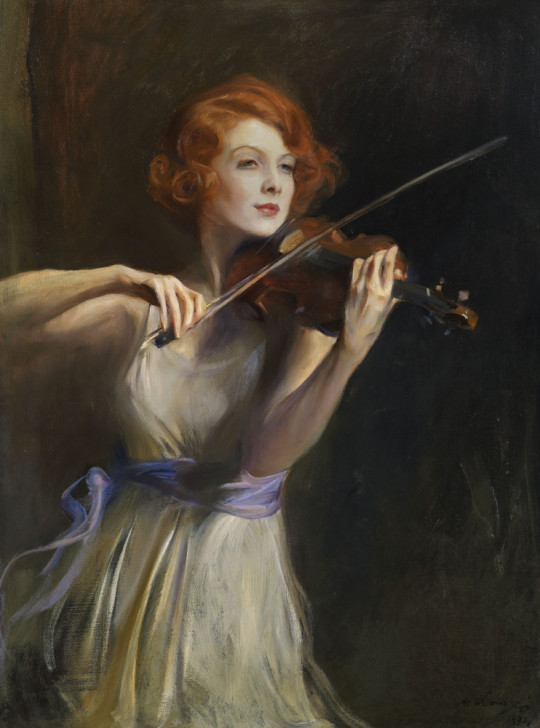
Philip de László - Miss Lisa Minghetti (1933)
Lisa was born Elise Pauline Pollak in Vienna on 17 October 1911, the daughter of Siegfried Pollak, an engineer and bridge builder, and his wife Adele, née Frankenstein. When Lisa was seven her father died of tuberculosis aged 51.
She made her first appearance at the age of twelve at an orchestral concert of the Vienna Symphony Orchestra. She studied the violin at the Vienna Conservatory, going later to Berlin to complete her training with Carl Flesch, after which she moved to London, probably in 1933, in October of which year the present portrait was made. According to her son, in order to leave Germany she had been helped by an Italian diplomat who had befriended her in Berlin. Lisa recalled attending a reception with him at which Hitler was present: as they had passed into the reception area she had seen two members of the Gestapo commenting on the women and overheard one say to the other he could “smell a Jew a mile away.” After she had been presented to Hitler, who kissed her hand, the same man said that Lisa, who was indeed Jewish, was the most beautiful woman present.
She never returned to her native Austria and changed her name officially to Lisa Minghetti in 1935, although earlier references to the present portrait indicate that she was using that name before. When the Germans arrived in Austria, her mother and elder sister emigrated to Buenos Aires but Lisa never saw her mother again. In England she frequently played at major orchestral concerts in London and the provinces. While there she met and married Anton Maaskoff, himself a violin prodigy and 18 years her senior.
Before the outbreak of war they moved to Los Angeles where her only child Maurice was born in 1940. There she performed with the Alan Hancock Ensemble at the University of Southern California, in motion picture studio orchestras, and frequently gave chamber music recitals at home and for benefit concerts. She was considered to be in the first rank of modern women violinists, combining sound musicianship with brilliance of execution. Early on she worked and developed a close relationship with Paul Robeson. Having experienced American racial prejudice with him, later she herself became involved in the civil rights movement. After Anton Maaskoff died in 1951 she married Alfred Lustgarten, a Julliard trained violinist, who adopted her son. His brother was a renowned cellist and both played under Toscanini for a number of years.
Lisa Minghetti died in Los Angeles of skin cancer on 7 October 1961, shortly before her fiftieth birthday. (source)
192 notes
·
View notes
Text
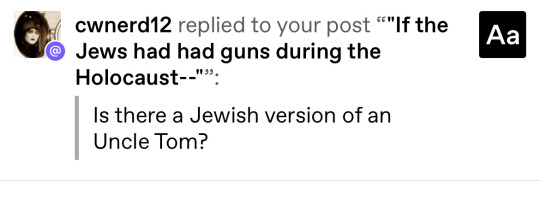
@cwnerd12 If we’re going to use “Uncle Tom” as shorthand for “oppressed person who chooses side of oppressor in hopes of being spared said oppression” in the context of the Holocaust, and specifically in the context of the Warsaw Ghetto, you have members of the Jewish police force, Gestapo informants, and some members of the Judenrat. Colloquially the term is “kapo.”
I used to use it freely towards other American Jews whose contemporary politics I find abhorent, but I’ve stopped. Because those Jews who colluded or collaborated had no way of knowing that the German goal was the extermination of all Jews. The Germans were excellent liars and propagandists, and no one wanted to believe that they could actually be trying to kill every European Jews.
Tl;dr I try to view these collaborators compassionately within their unique context, but YMMV
152 notes
·
View notes
Text

This is a memorial to the truth that real facts matter:
Over a third of Americans now don’t believe that over 6 million Jews were killed in the Holocaust, but on 2 July 1942, 82 children from Lidice -- a small village in Czechoslovakia -- were transferred to the Łódź Gestapo office. Those 82 boys and girls were then transported to an extermination camp at Chełmno 34 miles away. They were gassed shortly after their arrival. This remarkable sculpture by Marie Uchytilová commemorates them.—What you ignore you empower.
Never Again.
57 notes
·
View notes
Text
Walter Schellenberg
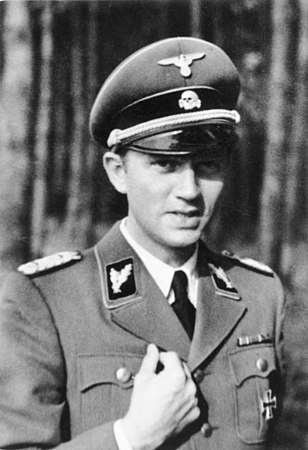
These are some facts and curiosities about Walter Schellenberg, the deputy head of the Gestapo:
He was born in Saarbrücken on 16 January 1910 but his family moved with his family to Luxembourg when the French occupation of the Saar Basin after the First World War triggered an economic crisis in the Weimar Republic.
He returned to Germany to attend university, first at the University of Marburg and then, in 1929, at the University of Bonn. He initially studied medicine, but soon switched to law.
He joined the SS in 1933.
He was recruited in the SD through 2 professors ( he gave an anti catholic speech which aroused Heydrich's interest )
In November 1939 Schellenberg played a key role in the Venlo Incident, which ended with the capture of two British espionage agents and was awarded the Iron Cross for this.
In 1940 he was responsible for drawing up a list of 2,300 British personalities who were to be arrested as soon as Germany occupied Great Britain; he was also involved in many other espionage activities, among which the Kitty Salon activity was very successful.
In March 1942, Heinz Jost was fired from his position as RSHA Chief of Amt VI, SD-Ausland (SD foreign intelligence). In his place, Schellenberg was appointed chief of SD-Ausland by Heydrich
According to his memoirs, Schellenberg had been a friend of Wilhelm Canaris, the head of the Abwehr (military intelligence).
In the last months of the conflict Schellenberg tried to persuade Himmler to reach a separate peace with the Western Allies by exploiting the mediation of Count Folke Bernadotte, whom he himself met personally in Stockholm in April 1945.
He was captured in Denmark in June 1945 while working on an attempt to make a separate peace with the Americans.
During the postwar Nuremberg Trials, Schellenberg testified against other Nazis. In the 1949 Ministries Trial he was sentenced to six years' imprisonment, during which time he wrote his memoirs, The Labyrinth.
He died of cancer in 1952 in Turin, Italy.
During the German occupation of Paris, Schellenberg was believed to have been a lover of Coco Chanel, who paid for the cost of his funeral when he died penniless.
Sources:
Wikipedia: Walter Schellenberg
Military Wiki: Walter Schellenberg
❗❗I DON'T SUPPORT NAZISM,FASCISM OR ZIONISM IN ANY WAY, THIS IS AN EDUCATIONAL POST❗❗
62 notes
·
View notes
Text
i'm in awe of those
who can work magic
with words
this certainly
includes you
and it includes d.a.levy
who was hounded
by Authorities
in cleveland
at a time
when i was a kid
enjoying
an idyllic
american summer
just a few dozen miles away
in olmsted falls, ohio
a few years later
i'd stumble upon
something by levy
in an alternative newspaper
and be moved or amused
or just plain fucking mystified
by the dance of language
then i heard he was dead
a bullet to the brain
a suicide
unable to endure
more persecution
by the civic gestapo
i've been haunted
by his ghost
ever since
38 notes
·
View notes
Text
Dulag Luft
Places of Interest in Masters of the Air
Masterlist
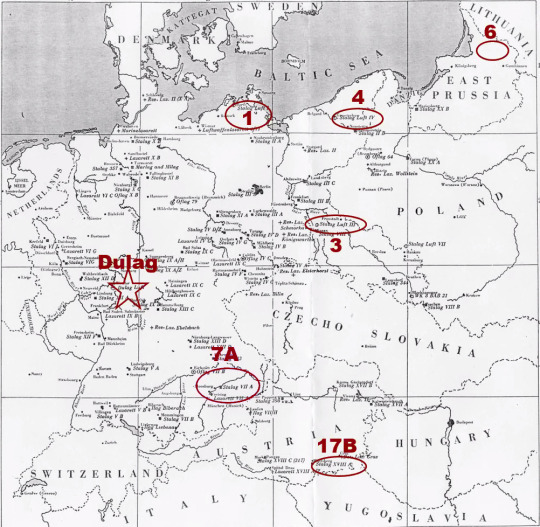
When captured by the Germans, Allied airmen would be sent to Dulag Luft, the interrogation and transit POW camp for the Luftwaffe that was just northeast of the city of Frankfurt. This is the camp where Cleven and Egan were held in solitary confinement for weeks before being transported right outside Sagan to Stalag Luft III.
Dulag Luft interrogators were some of the best in the business, and Miller describes them in Masters of the Air as "deeply skilled specialists who preferred methods more subtle than a rubber hose (Miller, 2007, pg. 386)." Many of these interrogators had spent time in America and were fluent in English. The conversation "would begin by offering him chocolate and cigarettes and then draw him into some light banter about American baseball or movies.... [the conversation] became so congenial that many airmen were unaware that the interrogation had begun (Miller, 2007, pg. 386)."
The interrogators had thick folders on each man and their bomb group. They gathered their information from intercepted communications, Stars and Stripes newspaper articles, and anything else they could get their hands on. It unnerved some of the men that the Germans knew such specific details of themselves, their families, and their bombardment groups. The conditions were terrible, and many of the officers were subjected to solitary confinement for weeks at a time.

Miller writes about this in his book:
“Downed Allied airmen felt safer in the hands of the German military than they did with the local citizenry they had bombed. Luftwaffe police and interrogators were in official charge of captured airmen, and their tactics for extracting information were rough but rarely barbaric. After being captured, Lou Loevsky was shipped with other downed American airmen to Dulag Luft, the Luftwaffe interrogation center for Allied airmen at Oberursel, a suburb of Frankfurt am Main.
At one point in his interrogation a smiling Luftwaffe major asked Roger Burwell why the men in his 381st Bomb Group at Ridgewell had not yet fixed the broken clock in their officers club. Airmen who refused to provide military or personal information were usually threatened verbally. Some were told that their families would not be informed they were alive and "safe" until they began to cooperate; men captured without identification tags were warned that they could be turned over to the Gestapo to be executed as spies. One stubbornly tight-lipped officer - married and with children - was told that if he persisted in his obstinacy, a report would go out the next day from the German radio station in Calais that the night before he was shot down he had been at the Grosvenor House in London, in room 413, with an attractive blond woman. Knowing that the information was exactly correct, the major is reported to have fainted on the spot.
Prisoners were also softened up by the appalling conditions at Dulag Luft: the tomblike isolation, the starvation rations, and the mice that ran free in the dank cells, and crawled in prisoners' pockets searching for food. Sometimes the promise of a shower, a shave, and a hot meal was sufficient to loosen a man's tongue. The guards also fiendishly manipulated the temperatures in the cells, shutting off the electric wall heaters in the winter and turning them up to intolerable levels, to 130 degrees, in warmer weather. Hundreds of airmen arrived at Dulag Luft wounded and were denied medical treatment, a flagrant violation of the Geneva Conventions regarding prisoners of war. "My interrogator said he could see that I was injured and needed treatment and that my being stubborn would only delay my being sent to a hospital," Roger Burwell re-called. On the other hand, high-ranking Allied fliers believed to possess specialized military information were taken on hunting trips or invited to raucous drinking parties with German officers.
Most of the information was gathered from Allied sources by Dulag Luft's efficient staff, who scrutinized American magazines and newspapers brought in from neutral Portu-gal, including Stars and Stripes, a rich source of hometown information about airmen. Additional information, including logbooks, briefing notes, and airmen's personal diaries, was gathered from clothing and other personal belongings found in the charred wreckage of bombers. These documents often contained highly secret data about flight patterns, the effectiveness of German defenses, and targets marked for future bombing.
An officer in the American Air Force's Counter Intelligence Corps noted at the time that 'it was not uncommon for large German manufacturers to ask the Luftwaffe if their factories were on the list, and if so, when they could expect to be bombed." German linguists also monitored Allied airmen's wireless communications. According to Hanns Scharff, the interrogators at Dulag Luft had at their disposal a copious file in which "nearly every single word spoken in the air from plane to plane or from base to plane or vice-versa was carefully noted." As Air Force counter-intelligence experts noted in their own secret files, "nothing in the way of documents, written or printed, was too insignificant to merit close scrutiny" by the intelligence staff at Dulag Luft.
A case in point is the airmen's ration cards. Every American flier in the European Theater received exactly the same kind of card, and there was nothing on the card to indicate where he was stationed. But investigators at Dulag Luft were able to identify an airman's bomb group by the way his card was canceled. At Thorpe Abbotts, for example, the clerks on duty in the PX marked the cards with a heavy black pencil. The PX counter was made of rough board. All the cards canceled there carried the impression of its distinctive pattern in the black pencil markings. The Air Force's Counter Intelligence Corps estimated that 80 percent of the information obtained by Dulag Luft was supplied by captured documents and monitored radio traffic, with the remainder coming from POW interrogations.
After the war, when he was hired as an interpreter by the American military, Hanns Scharff estimated that all but twenty of the more than 500 airmen he questioned disclosed operational and tactical information that proved useful to the Luftwaffe. Few of these airmen, he emphasized, did it knowingly, or through intimidation or a conscious desire to improve the conditions of their confinement. "I suppose he got something out of me," said one flier, "but to this day I haven't the least idea what it could have been."
After being released from Dulag Luft, Loevsky and several dozen other airmen were taken by tram to Frankfurt, where they were herded onto cattle cars and sent deep into German-occupied territory to Stalag Luft III (Air Camp number three), near the town of Sagan, a hundred miles southeast of Berlin, one of the half-dozen main POW camps operated by the Luftwaffe hence the term "Luft," or air-for Allied airmen (Miller, 2007, pg. 387-89)."
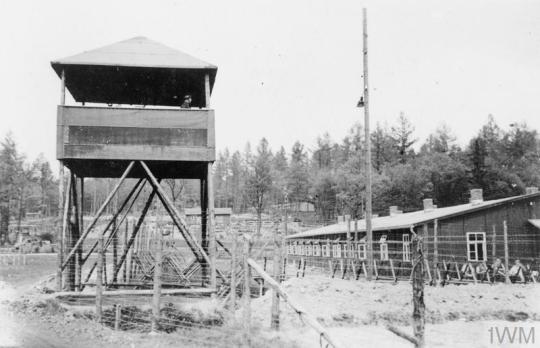
Dulag Luft was the first stop in a sequence of camps and transportation depots that downed airmen had to go through. Hopefully, we'll get to see more of the camp in the show! We're less than a month away, guys! The wait is almost over!!

tag list: @ronald-speirs @footprintsinthesxnd @georgieluz @sweetxvanixlla @coco-bean-1218 @gloryofwinter
message or comment if you want to be added to the tag list! <3

#gale cleven#john egan#masters of the air#gale buck cleven#hbo war#major buck cleven#major john egan#rosie rosenthal#1940s#8th air force#stalag iii#stalag luft iii#dulag luft#pow#100th bomb group#eighth air force#about masters of the air#road to masters of the air#donald miller#masters of the air book
29 notes
·
View notes
Text
I'm trying to focus on what I liked about Episode 7 and my brain is just looping a few things.
-Was that Colonel Alkire at the camp heading up compound staff? I missed if he was named, but if so, I'm quite pleased to see him.
-Frank Murphy getting a letter from his mom ❤️
-The way the show approached the Great Escape. They managed to keep the focus entirely on the tragedy and incredulousness of the situation, and on how it could directly impact the American prisoners in the other compounds. It felt very balanced and very Great Escape in the context of MotA, not Great Escape eclipsing the show.
- MUSTANGS!!!!! MotA is a bomber-centric show and B-17s are incredible in how they can be beat to hell and keep flying, but fighter planes will always be my first love when it comes to WWII.
-Von Lindeiner's removal from his position as commodant being mentioned. He's someone I find very interesting, plus it's nice to have that hint of how there was a whole world of politics going on when it came to the running of the camps and the tension between the Luftwaffe and the Gestapo.
- I loved all the fountain pen shots we got to see this ep when folks were writing.
#gotta focus on the good#masters of the air#mota spoilers#MotA#MotA: Episode 7#ngl when they were saying who thier letters were from I pulled an Egan and said “his mom!!” when Frank was talking. i love Frank's mom#I say compound staff bc which compund? unclear. Some of the lads were in South and asked to move to Center#but then they were apparently in West at the time of the march so idk we're just winging it at this point#the p-51s could have had more/better screen time but the Tuskegee boys will be here soon hopefully#frank murphy#darr alkire#Friedrich Wilhelm von Lindeiner-Wildau#gonna leave out all the middle names bc holy hell would that be a long tag#stalag luft iii#hbo war#ken lemmons
20 notes
·
View notes
Text
Popular Front for the Liberation of Palestine: Targeting hospitals is a complete zionist war crime
The Popular Front for the Liberation of Palestine holds the American administration and the international community responsible for the Nazi zionist occupation's storming of the Nasser Medical Complex in Khan Younis city, firing towards its medical departments, and demanding the wounded to leave after besieging it for several days, targeting dozens with sniping and shellfire.
The Front affirmed that what is happening in the Nasser Medical Complex is a complete zionist war crime. History or previous wars have not witnessed a zionist criminal series like this one targeting hospitals, bombing, destroying them, and shooting patients inside departments or operating rooms or targeting unborn children. These unprecedented crimes have become a trademark registered in the name of the criminal zionist entity.
The Front stressed that the international community's failure to deter the occupation since its first massacre at the Baptist (Al-Maamadani) Hospital, then in "Al-Shifa, Al-Rantisi, Kamal Adwan, Al-Awda, and the Indonesian" hospitals and other clinics and medical centers, committing the most heinous crimes in them, and destroying the health infrastructure in the besieged Strip, allowed this criminal enemy to storm Nasser Hospital and turn its courtyard into a place for killing, bombing, and a camp for interrogation and detention reminiscent of the Gestapo camps during the Nazis where the most heinous terrible crimes were committed.
The Front concluded its statement by affirming that the sufferings of our people, the screams of the patients and the wounded with amputated limbs, and the suffering of the doctors will turn into a nightmare haunting the occupation and its agents in their dreams and lives, and the occupation and all who participated with it, conspired with it, or failed to support our people will pay a heavy price for these crimes. Resistance is the one capable of deterring the occupation, and the one continuing to strike the enemy, and inflicting significant losses.
The Popular Front for the Liberation of Palestine
Central Media Department
15-2-2024
22 notes
·
View notes
Text

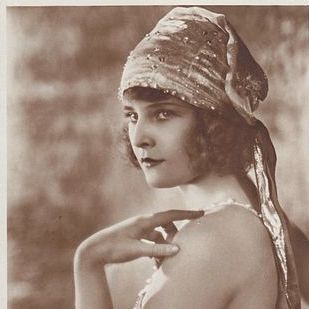
Propaganda
Colleen Moore (Flaming Youth, Ella Cinders)— One of the highest paid, most in-demand actresses of the silent film era, Colleen Moore defied genre and kept herself one step ahead of the competition (and although Moore was the OG flapper, her longtime rival Clara Bow would become more famous for the image) as well as invested her earnings to ensure her financial security after she retired. She even wrote a book all about investing in the stock market! Moore also nurtured a passion for dollhouses throughout her life and helped design and curate The Colleen Moore Dollhouse, which has been a featured exhibit at the Museum of Science and Industry in Chicago since the early 1950s.
Lilian Harvey (Die Drei von der Tankstelle, Der Kongreß Tanzt, Glückskinder)— Lilian Harvey was one of the most popular German film stars of her time, appearing alongside frequent co-star Willy Fritsch like a European version of Ginger Rogers and Fred Astaire. She had it all: she could act, she could dance, she could sing, she was hot, and she wasn't afraid to stick it to the Nazis. During the 1930s, she remained in contact with her Jewish friends and colleagues, which earned her the scrutiny of the Gestapo. When choreographer Jens Keith was arrested for having a sexual relationship with another man, Lilian posted his bail, allowing him to escape to France. She was eventually forced to flee Germany herself, and her film career never recovered. She is perhaps best known to American filmgoers from her brief mention in "Inglourious Basterds," when Joseph Goebbels insists that her name not be mentioned in his presence.
This is round 1 of the tournament. All other polls in this bracket can be found here. Please reblog with further support of your beloved hot sexy vintage woman.
[additional propaganda submitted under the cut]
Lilian Harvey:
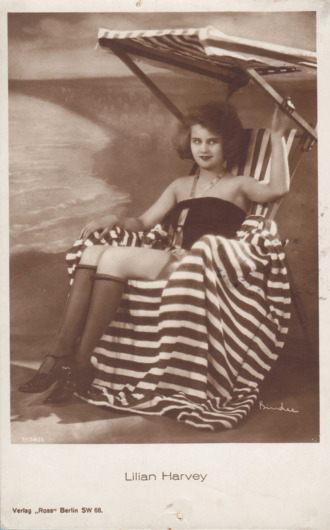
Colleen Moore:


Colleen is charming and funny, she was one of the starlets to popularize the iconic 1920s bob!
She's like the deep cut version of Louise Brooks, with majority silent films, and a large percentage of them lost-- BUT 'Why Be Good?' is such a fun movie and she wears really cute dresses and has all the best parts of Pre-Code leading lady fun!
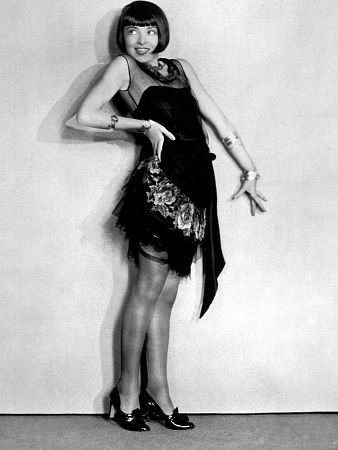
90 notes
·
View notes
Text
First we must study how colonization works to decivilize the colonizer, to brutalize him in the true sense of the word, to degrade him, to awaken him to buried instincts, to covetousness, violence, race hatred, and moral relativism; and we must show that each time a head is cut off or an eye put out in Vietnam and in France they accept the fact, each time a little girl is raped and in France they accept the fact, each time a Madagascan is tortured and in France they accept the fact, civilization acquires another dead weight, a universal regression takes place, a gangrene sets in, a center of infection begins to spread; and that at the end of all these treaties that have been violated, all these lies that have been propagated, all these punitive expeditions that have been tolerated, all these prisoners who have been tied up and "interrogated, all these patriots who have been tortured, at the end of all the racial pride that has been encouraged, all the boastfulness that has been displayed, a poison has been instilled into the veins of Europe and, slowly but surely, the continent proceeds toward savagery.
And then one fine day the bourgeoisie is awakened by a terrific reverse shock: the gestapos are busy, the prisons fill up, the torturers around the racks invent, refine, discuss.
People are surprised, they become indignant. They say: "How strange! But never mind-it's Nazism, it will. pass!" And they wait, and they hope; and they hide the truth from themselves, that it is barbarism, but the supreme barbarism, the crowning barbarism that sums up all the daily barbarisms; that it is Nazism, yes, but that before they were its victims, they were its accomplices; that they tolerated that Nazism before it was inflicted on them, that they absolved it, shut their eyes to it, legitimized it, because, until then, it had been applied only to non-European peoples; that they have cultivated that Nazism, that they are responsible for it, and that before engulfing the whole of Western, Christian civilization in its reddened waters, it oozes, seeps, and trickles from every crack.
Yes, it would be worthwhile to study clinically, in detail, the steps taken by Hitler and Hitlerism and to reveal to the very distinguished, very humanistic, very Christian bourgeois of the twentieth century that without his being aware of it, he has a Hitler inside him, that Hitler inhabits him, that Hitler is his demon, that if he rails against him, he is being inconsistent and that, at bottom, what he cannot forgive Hitler for is not crime in itself, the crime against man, it is not the humiliation of man as such, it is the crime against the white man, the humiliation of the white man, and the fact that he applied to Europe colonialist procedures which until then had been reserved exclusively for the Arabs of Algeria, the coolies of India, and the blacks of Africa.
And that is the great thing I hold against pseudo-humanism: that for too long it has diminished the rights of man, that its concept of those rights has been - and still is - narrow and fragmentary, incomplete and biased and, all things considered, sordidly racist.
"Discourse on Colonialism", Aimé Césaire (1955), translated by Joan Pinkham (1972)
apply this as you will as the rabid fashisation of american libs even the smol beans on this godforsaken "queerest place on the internet"
19 notes
·
View notes
Text
One of Russia’s most famous 20th-century novels has returned to the Silver Screen. Infamously difficult to capture as a motion picture (more mystical observers even speak of a curse), Mikhail Bulgakov’s “The Master and Margarita” is back, reinterpreted by American-Russian filmmaker Michael Lockshin. The new movie stars Evgeny Tsyganov and Yulia Snigir in the titular roles and features German actor August Diehl (Gestapo major Dieter Hellstrom in Quentin Tarantino’s “Inglourious Basterds”) as the story’s demonic character Woland. Meduza reviews the controversy surrounding the film’s director and funding, the book’s cinematic history, and Lockshin’s adaptation.
The political controversy
Michael Lockshin’s “The Master and Margarita” averages an impressive 7.9/10 rating with more than 43,000 reviews at KinoPoisk and leads Russia’s box office in its opening week after earning 57.3 million rubles ($640,000) on its first day in theaters, but the director was making enemies before his film ever sold a single ticket. Self-described patriots denounce Lockshin as a Russophobe, a traitor, and a neoliberal besmircher of the intrepid Soviet secret police. They call him a hypocrite, too, in light of the fact that this new adaptation of Bulgakov’s classic was made (in 2021, before the full-scale invasion of Ukraine) with 800 million rubles ($8.9 million) from Russia’s Cinema Foundation, the state’s key funding agency for the domestic film industry.
Lockshin, who now resides in the United States, declined to answer Meduza’s questions about the backlash in Russia, saying he’s not yet ready to comment on the situation. On Telegram, pro-war channels have circulated screenshots of Facebook posts that are now hidden from non-friends where Lockshin shared independent reporting about the war in Ukraine, wrote that he’s donated to Ukrainian organizations, warned that future generations of Russians will be paying reparations for the “tragedy they brought to Ukraine,” and compared the Putin regime to Nazism in Germany.
State propagandist Tigran Keosayan has advocated criminal charges against Lockshin, while Trofim Tatarenkov, a host on Russia’s state-run Sputnik radio (who admits that he hasn’t even seen Lockshin’s movie), called the filmmaker “scum” and fondly remembered how such “enemies of the people” were shot during the Stalinist era.
Previous adaptations
In May 2016, poet and literary critic Lev Oborin wrote an essay for Meduza answering several “questions you’re too embarrassed to ask” about Bulgakov’s “The Master and Margarita,” including the most shameful of all: Can I just skip the book and watch a movie version instead? The short answer is, yes, you can always skip the book. In fact, unless you’re a student or some other kind of hostage, you can skip the movies, too. But since you asked, there are at least two previous screen adaptations of “The Master and Margarita” worth knowing about.
The better-liked version, at least until now, has been Yuri Kara’s 207-minute film, made in the mid-1990s but not released until August 2011. Meanwhile, in 2005, Vladimir Bortko created a miniseries for Russian television that was criticized for uneven casting and even worse special effects. Unfortunately for Bortko, the 10 episodes drew deeply unfavorable comparisons to his beloved 1988 adaptation of Bulgakov’s “Heart of a Dog.”
It’s also tempting to contrast Bortko’s miniseries with Kara’s adaptation — particularly how the two portrayed one of the novel’s most visually scandalous scenes: Satan’s Grand Ball. Filmed almost a decade later and made for TV, the sequence in Bortko’s series “looks almost puritanical” compared to Kara’s film, noted Lev Oborin. In raw terms of nudity and violence, this assessment is hard to contest:
youtube
So, is Lockshin’s adaptation any good?
Anton Dolin (a prominent Russian film critic who might be best known to casual Internet users as the interviewer who provoked Ridley Scott into saying, “Sir, fuck you. Fuck you. Thank you very much. Fuck you, go fuck yourself.”) liked Lockshin’s adaptation quite a bit. In a review published by Meduza, Dolin writes that the film “manages to retain the sharpness of the original source, which mocks Soviet power, and at the same time offers the viewer an innovative perspective on a classic text.”
Dolin praises Lockshin’s “Hollywood flourishes” and his capacity to juggle the book’s “genre and intonation incompatibility,” which has plagued past interpretations. The new adaptation brings a “circus element” to the story without sacrificing the script’s “rigidity,” says Dolin, while also “condensing the vastness of Bulgakov's novel into a coherent and clear narrative.” (You’ve been warned, formalists.)
Lockshin’s film takes some liberties with Bulgakov’s classic. For example, in the novel, the Master character doesn’t emerge until the middle of the book, leaving the reader to wonder about the title. In the new film, however, the main plotline belongs to the love story between Margarita Nikolaevna (the unhappily married wife of a Soviet functionary) and a writer she calls the Master. According to Lockshin’s script (which he co-wrote with Roman Kantor), the secondary narrative involving Pontius Pilate’s trial of Yeshua Ha-Notsri (Jesus of Nazareth) is a play within the story written by the Master and pulled from production by Soviet censors after its opening performance. (In a feat of authenticity unprecedented in modern Russian cinema, the Jerusalem scenes, which comprise roughly 10 minutes of the film, are performed in Aramaic and Latin.) Meanwhile, all the adventures across Moscow involving Woland and his entourage are presented as figments of the Master’s imagination as he slowly loses his mind under state persecution.
As Lockshin has argued in comments promoting the movie, Dolin says Bulgakov’s novel enjoys heightened relevance in contemporary Russia, and the new film makes menacing villains of NKVD executioners while presenting even more revolting characters in the Soviet elites whose conformity and hypocrisy enabled the Stalinist regime.
Dolin praises the decision to cast August Diehl as Woland, the mysterious foreigner whose visit to Moscow sets the plot rolling in the novel. Diehl’s Woland “is a real find,” Dolin writes. The German actor plays the character as “an infernally sarcastic gentleman in black” who resembles Satan “more than the thoughtful, sad wisemen from various Russian interpretations of the same character.”
A cartoonishly scary foreigner, complete with a spooky German accent, Woland turns out to be the creation of the writer’s wounded mind, his alter ego, writes Dolin. The censorship and persecution the character faces in the film are a “chilling reproduction” of mechanisms that resonate more in Putinist than Stalinist Russia, Dolin argues, highlighting some lines that wink boldly at modern-day realities, including nods to Crimea, oil production, and military parades.
Lockshin’s adaptation also features a fantastical version of Moscow that recalls the visionary designs of artists in the Higher Art and Technical Studios, which flourished in the 1920s before crumbling under Stalinism. In this universe, Moscow completed the Palace of the Soviets, altering the skyline in a delirious finale that depicts the city ablaze. This scene, in particular, has upset several state propagandists.
Dolin notes that Margarita is absent from the story for much of the film, but she reappears in the final act as a heroine on her own narrative arc. In the character’s scenes as a witch and then a queen, Lockshin’s intentions and the meaning of the novel’s title finally become clear, says Dolin:
It’s not the imagination of the writer that transforms the grim reality but exclusively the emotion that is capable of elevating you to the heavens, of burning cities, and punishing or pardoning with the mere force of thought. In the end, Lockshin’s film is not about Satan, not about Moscow, not about Pilate, and not about totalitarianism, censorship, or creativity, but about love. It alone makes a person invisible and free.
22 notes
·
View notes
Note
Realistically, what do you think is the best case scenario for the Sylas game in terms of story, REALISTICALLY?

The BEST case scenario, I think, is that it will focus on his abuse at the hands of the Mageseekers, and his own mounting realization at what's being done to him. It'll focus on his disillusionment and mounting misery and what he's being made to do, and will depict the Mageseekers fully as, y'know, the eugenicist Magic Gestapo that they are.
I doubt it'll have the stones to condemn Demacia as a nation outright, nor its government. And I fear that it won't be able to resist pulling the "few bad apples" shit with the Mageseekers also. Like, there will be some typical Good Cops™ among them who are sympathetic and nice, and gosh don't you know some of these mages are scary and dangerous, maybe having some kind of magic police to control them is very important and good actually, maybe we shouldn't condemn the whole Mageseeker organization urble burble slurp slurp oh my god these boots taste so GOOD
Honestly, so long as they just manage to avoid the antisemitic tropes around persecuting minorities over the practise of magic, I'll breathe a sigh of relief, but Riot is a neoliberal capitalist American company and it shows in their creative output. Centrism is their default state of being, and they've already shown a proclivity for both-sides'ing the Demacia storyline, so if they pull a Dragon Age here I will not be surprised.
#tb answers#riot games#demacia#riot forge#league of legends#runeterra#sylas league of legends#mageseekers
147 notes
·
View notes